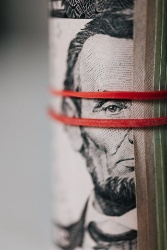Open letter to Vice -President Boediono
Open letter to Vice -President Boediono
Vice
-President Boediono,
C/- Indonesian Consulate
Perth ,
Western Australia
9 March 2011
Dear Vice -President Boediono,
On behalf of the Australia West Papua Association (Sydney), I am writing to you concerning the human rights situation in West Papua[1].
We are concerned that the human rights situation in West Papua has continued to deteriorate in the past year. One incident in particular highlighted the worsening human rights situation and that was the shocking video footage of West Papuans being tortured by Indonesian soldiers. The video showed several men in military fatigues torturing two Papuans. The soldiers in the video threaten the two men with sharp weapons and pressed a burning bamboo stick against one of the men’s genitals. The torture of the men prompted a wave of international criticism with human rights organisations around the world condemning the actions of the Indonesian military. This incident was not an isolated incident.
A number of military operation also took place in the Puncak Jaya region in the past year and these operations leave the local people traumatised and in fear for their lives. Security forces conduct regular sweeps in the area to pursue members of the Free Papua Movement (OPM) and many reports have pointed out that the security forces have great difficulty distinguishing between what they term separatists and the general public. In further evidence of human rights abuses another report accused the police of burning down the village of Bigiragi in the Puncak Jaya district. The report said that 16 Mobile Brigade officers had burned the village to the ground on October 11. The report said that at least 29 homes were destroyed in the incident leaving at least 150 people homeless. In September 2010 the House of Representatives (DPR) Law Commission deputy chairman, Tjatur Sapto Edy lamented the military operations in the Puncak Jaya Regency following a report by the National Commission for Human Rights (Komnas HAM). Tjatur said there should be no more military operations and such approaches are no longer suitable in a democracy. A report by Komnas HAM’s Papua chapter revealed 29 cases of rights abuses occurred in Puncak Jaya regency from 2004-2010, including the torture and rape of villagers in March 2010 by law enforcers.
AWPA is also concerned about the large number of
political prisoners in West Papua, the majority jailed
merely because the were involved in peaceful demonstrations
where their national flag, the Morning Star was raised.
In July 2007, Indonesia’s Constitutional Court declared unconstitutional articles 154 and 155 of Indonesia’s Criminal Code, commonly known as the “hate sowing” (Haatzai Artikelen) offenses. Articles 154 and 155 criminalized “public expression of feelings of hostility, hatred or contempt toward the government” and prohibited “the expression of such feelings or views through the public media.” These articles have been used to target activists, students, and human rights defenders to try and silence political discussion and limit free expression in Indonesia.
A series of articles from 1999 to 2002 refer to the Human Rights Bill of 1999 . The law concerning protection of human rights of political prisoners is referred to in Article 4 of Law 39 in the Indonesian Constitution in 1999. In that same Law 39 in Article 6 , paras 1 and 2 particular mention is made of protection of rights of Indigenous people, including land rights.
Republic of Indonesia legislation number 39 of 1999
concerning human rights
Article 4
The right to life,
the right to not to be tortured, the right to freedom of the
individual, to freedom of thought and conscience, the right
not to be enslaved, the right to be acknowledged as an
individual before the law, and the right not to be
prosecuted retroactively under the law are human rights that
cannot be diminished under any circumstances
whatsoever.
Article 6
(1) In the interests of
upholding human rights, the differences and needs of
indigenous peoples must be taken into consideration and
protected by the law, the public and the Government.
(2)
The cultural identity of indigenous peoples, including
indigenous land rights, must be upheld, in accordance with
the development of the times.
AWPA urges the Indonesian Government to release all West Papuan political prisoners imprisoned under these laws (contrary to Indonesia's constitution) as a sign of good faith to the West Papuan people.
Yours sincerely
Joe
Collins
Secretary
AWPA
(Sydney)


 Amnesty International Aotearoa NZ: Global - Recorded Executions Highest Since 2015
Amnesty International Aotearoa NZ: Global - Recorded Executions Highest Since 2015 Save The Children: MYANMAR - Heavy Rains Heighten Risk Of Disease Outbreaks Following Earthquake
Save The Children: MYANMAR - Heavy Rains Heighten Risk Of Disease Outbreaks Following Earthquake UNICEF Aotearoa NZ: Aid Cuts Threaten Fragile Progress In Ending Maternal Deaths, UN Agencies Warn
UNICEF Aotearoa NZ: Aid Cuts Threaten Fragile Progress In Ending Maternal Deaths, UN Agencies Warn Médecins Sans Frontières: Concern Over Planned Deportation Of Afghan Refugees In Pakistan
Médecins Sans Frontières: Concern Over Planned Deportation Of Afghan Refugees In Pakistan European Cultural Centre: Time Space Existence 2025 - A Collective Call To Repair, Regenerate, And Reuse
European Cultural Centre: Time Space Existence 2025 - A Collective Call To Repair, Regenerate, And Reuse John P. Ruehl, IMI: What Will Tech Moguls Do With Their Wealth?
John P. Ruehl, IMI: What Will Tech Moguls Do With Their Wealth?